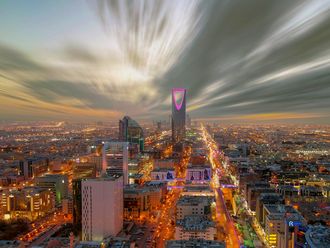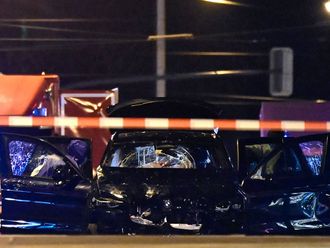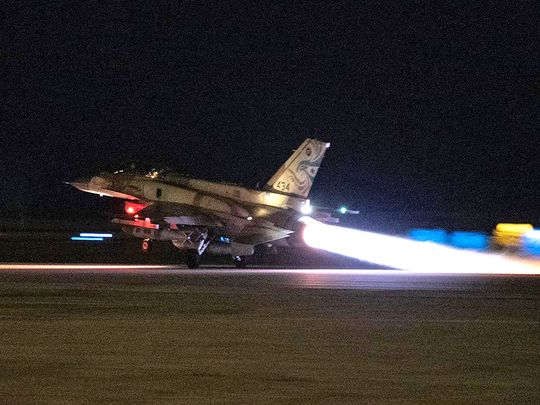
Dubai: Israel piled pressure on the Hezbollah militant group on Thursday, bombing its sites in Lebanon and flying warplanes low over Beirut days after targeting its communications systems.
Coordinated blasts over two days killed 32 people and wounded more than 3,000, according to the Lebanese health ministry.
The wave of explosions have frayed the nerves of Lebanese already struggling to cope with the repercussions of more than 11 months of cross-border fire between Hezbollah and Israel over the Gaza war.
Some panic-stricken Lebanese have tossed power banks, or sleep with mobile phones in another room, after pagers and walkie-talkies used by Hezbollah operatives detonated two days in a row.
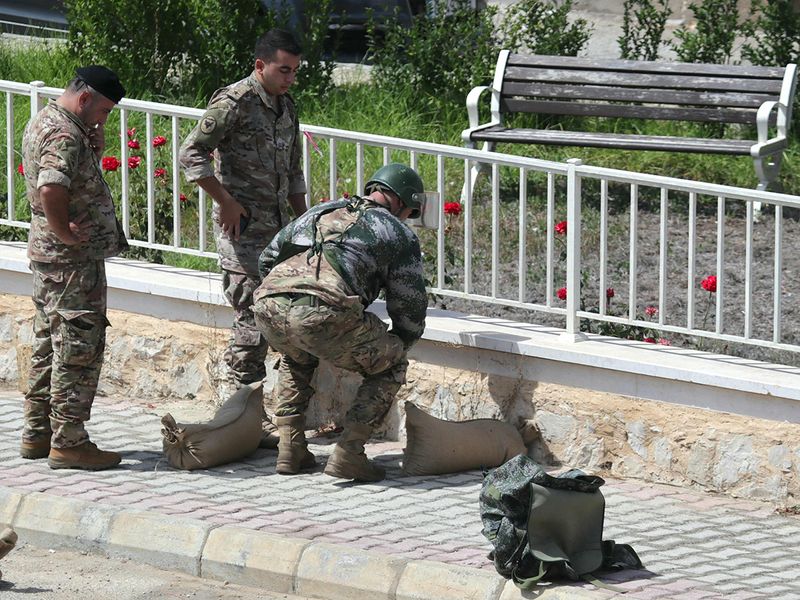
In the latest cross-border fire, the Israeli military said it struck six Hezbollah "infrastructure sites" and a weapons storage facility in southern Lebanon overnight.
The exchanges of fire have also forced tens of thousands of people on both sides of the border to flee their homes.
Israel has not commented on the unprecedented attacks in which Hezbollah operatives' hand-held devices exploded in supermarkets, on streets and at funerals.
But its defence minister, Yoav Gallant, said on Wednesday, in reference to Israel's border with Lebanon: "The centre of gravity is moving northward."
"We are at the start of a new phase in the war," he said.
Hezbollah leader reacts
The leader of Hezbollah Hassan Nasrallah acknowledged on Thursday that his group had suffered a "major and unprecedented" blow.
Describing the attacks as a "massacre" and as a possible "act of war", Nasrallah said Israel would face "tough retribution and a just punishment, where it expects it and where it does not".
Even as he delivered his televised address, Israeli warplanes broke the sound barrier over Beirut.
Dangerous development
Lebanon's Foreign Minister Abdallah Bou Habib said the "blatant assault on Lebanon's sovereignty and security" was a dangerous development that could "signal a wider war".
Its prime minister, Najib Mikati, urged the United Nations to oppose Israel's "technological war" on the country, ahead of a UN Security Council meeting on the exploding devices attack.
Iran's envoy to the UN said his country "reserves the right to take retaliatory measures" after its ambassador in Beirut was wounded in the blasts.
The White House, which is pressing to salvage efforts for an elusive ceasefire deal to end the Gaza war, warned all sides against "an escalation of any kind".
"We don't believe that the way to solve where we're at in this crisis is by additional military operations at all," said US National Security Council spokesman John Kirby.
Two Israeli soldiers killed
The Israeli military said two soldiers were killed on Thursday near Israel's northern the border with Lebanon, where Israeli forces are engaged in near-daily clashes with the Lebanon-based group Hezbollah.
Panic in Lebanon
Scenes of carnage circulating on social media showing injured, bloodied people lying in the street or falling to the ground after explosions in shops have shocked many in Lebanon.
Doctors in Lebanon spoke of horrific eye injuries and finger amputations caused by the blasts.
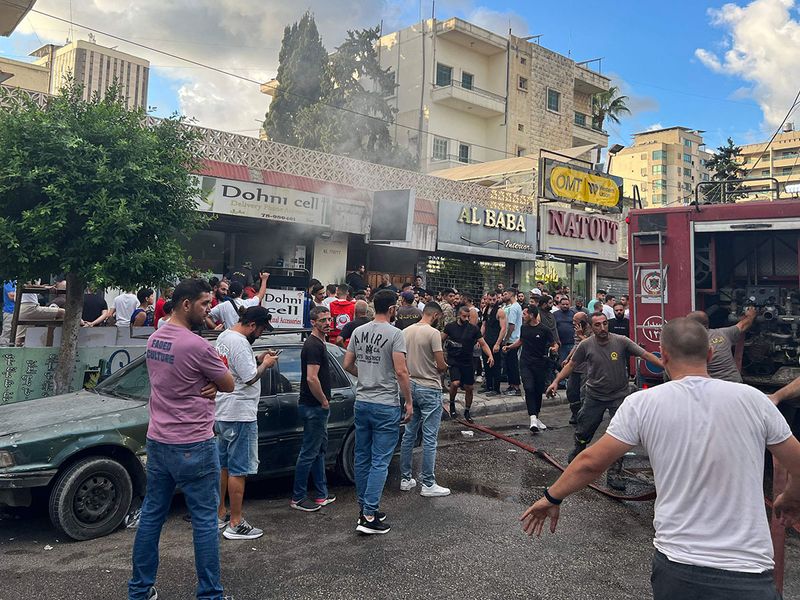
"What happened in the last two days is so frightening. It's terrifying," Lina Ismail was quoted as saying by AFP, from the eastern city of Baalbek where some of the explosions occurred.
"We were so scared that we dismantled the inverter (a component inside solar energy systems) and turned off the device," she said.
"I took away my daughter's power bank and we even sleep with our mobile phones in a separate room," she said.
How did the hand-held devices explode?
Analysts say operatives had likely planted explosives on the pagers before they were delivered to Hezbollah.
The preliminary findings of a Lebanese investigation found the pagers had been booby-trapped, a security official quoted by AFP said.
"Data indicates the devices were pre-programmed to detonate and contained explosive materials planted next to the battery," the official said, requesting anonymity to discuss sensitive matters.
A source close to Hezbollah, asking not to be identified, said the pagers were recently imported and appeared to have been "sabotaged at source", AFP reported.
The New York Times reported Wednesday that the pagers that exploded were produced by the Hungary-based BAC Consulting on behalf of Taiwanese manufacturer Gold Apollo. It cited intelligence officers as saying BAC was part of an Israeli front.
A government spokesman in Budapest said the company was "a trading intermediary, with no manufacturing or operational site in Hungary".
Japanese firm Icom said it had stopped producing the model of radios reportedly used in Wednesday's blasts in Lebanon around 10 years ago.
Why is Israel focusing on the Lebanon border?
Since the Gaza war began almost a year ago, Israel and Hamas ally Hezbollah have engaged in near-daily cross-border clashes.
Hundreds have been killed in Lebanon, mostly Hezbollah militants, and dozens have died in Israel, with tens of thousands displaced on both sides.
Prime Minister Benjamin Netanyahu and other Israeli officials have stressed the need to secure the north so uprooted residents can return home.
"We will use all means necessary to restore security to our northern border and to safely return our citizens to their homes," Netanyahu said during a recent trip to the north.
What are Israel's goals?
There have been calls from within the Israeli government to push Hezbollah out of southern Lebanon, beyond the Litani river, but Israel's current strategy remains unclear.
The United States, through its envoy Amos Hochstein, favours a diplomatic solution that keeps Hezbollah and its vast arsenal of rockets away from the border.
- With inputs from AFP






